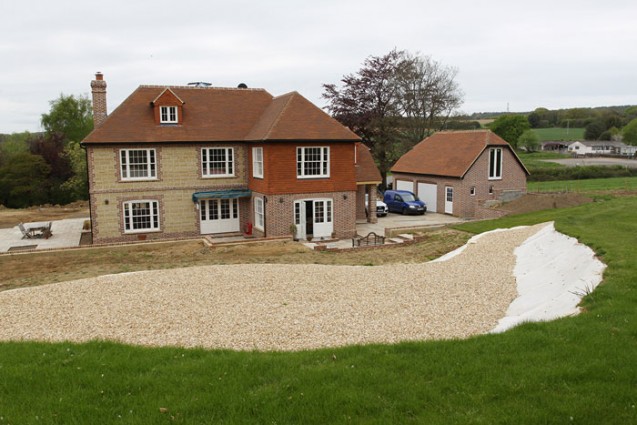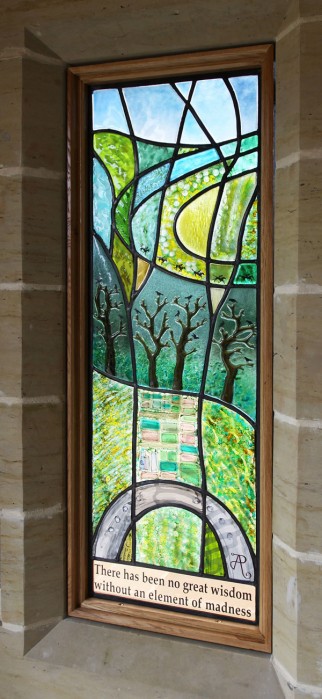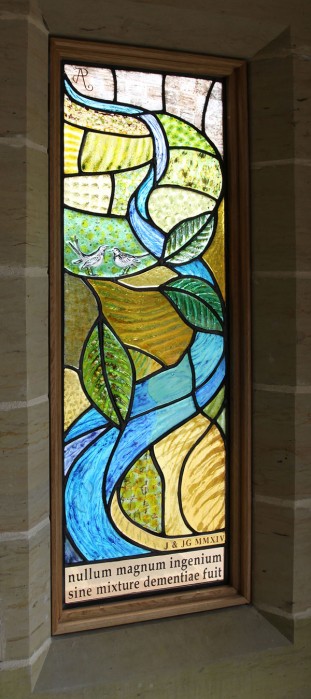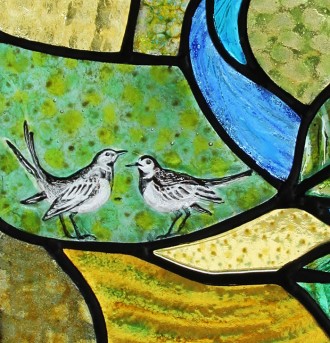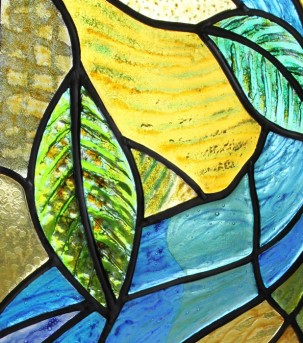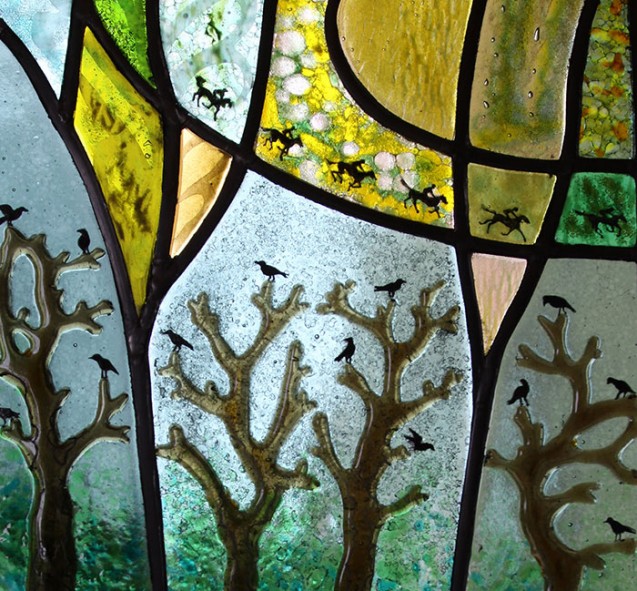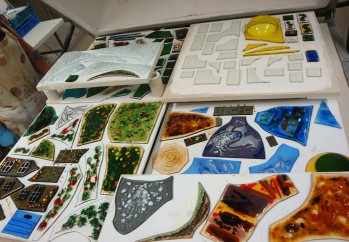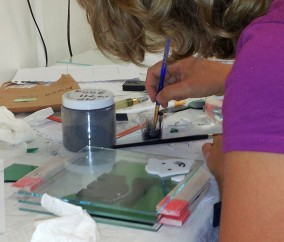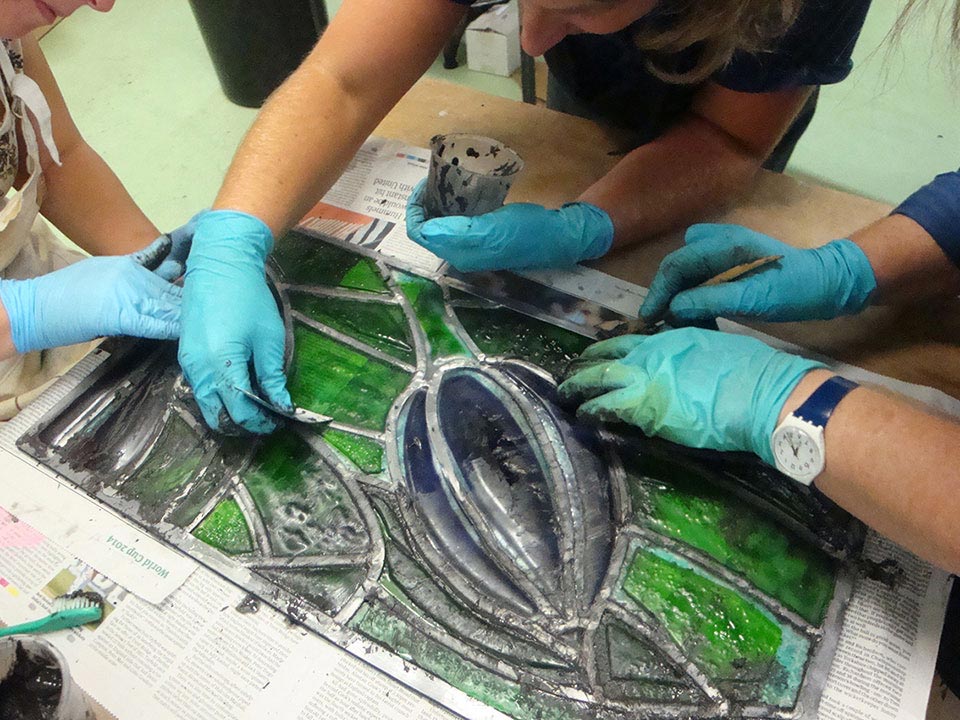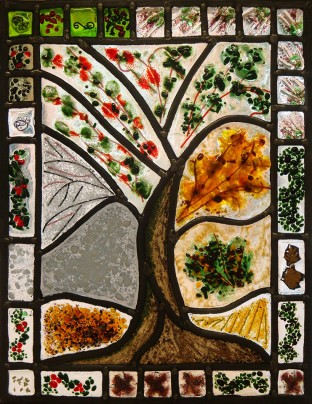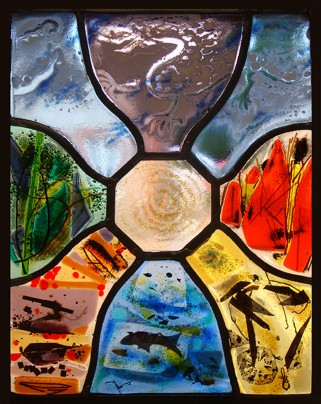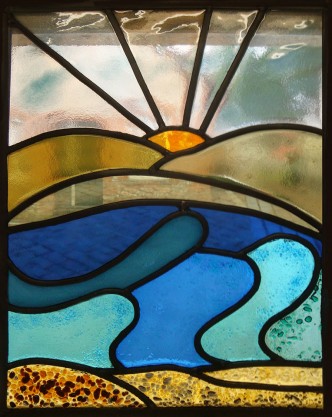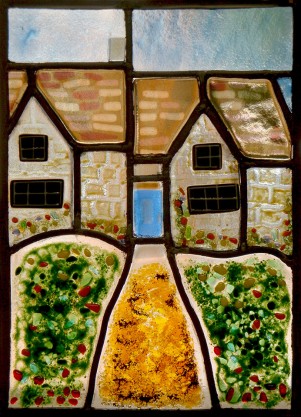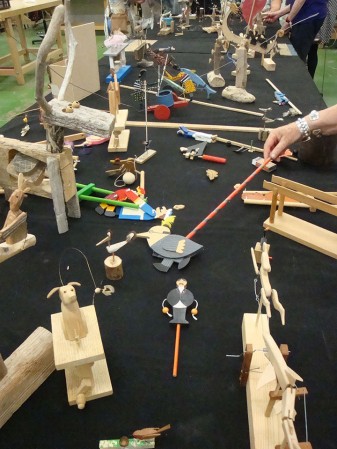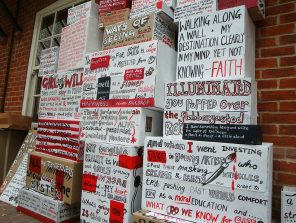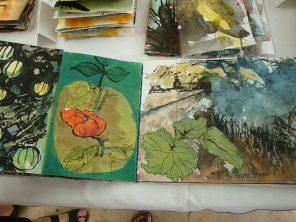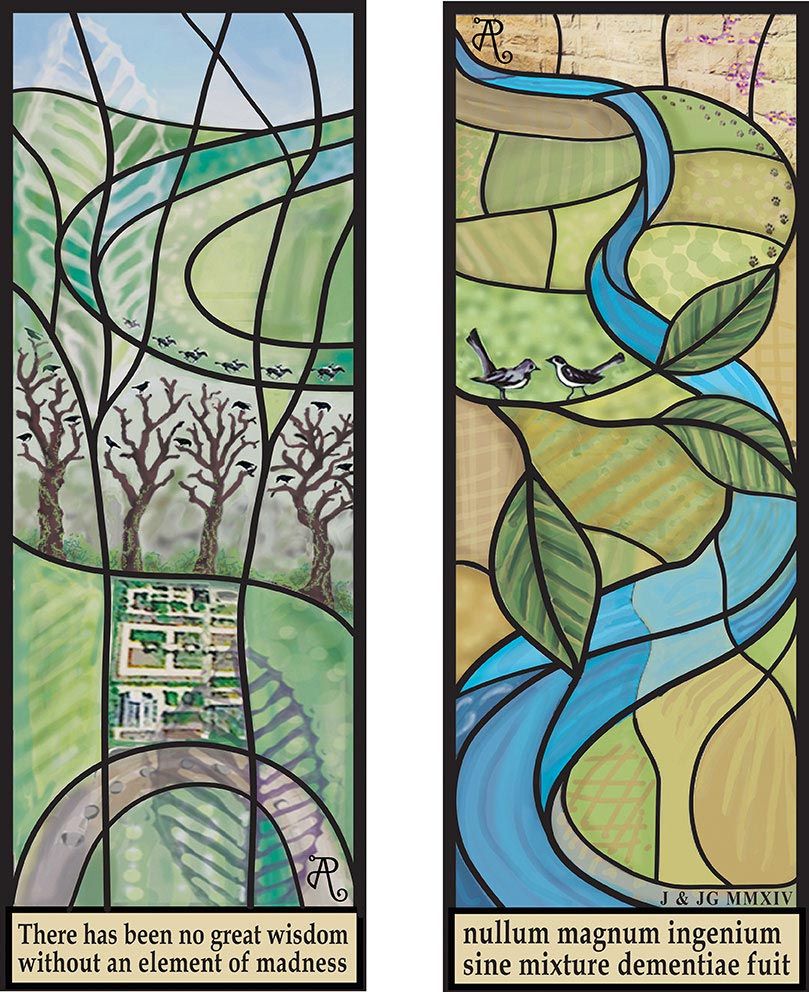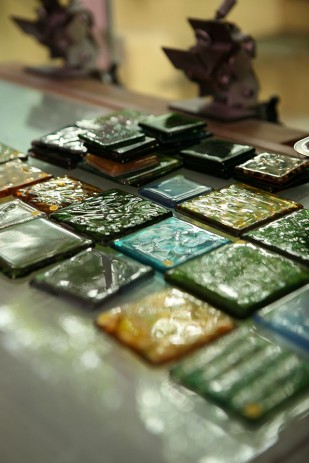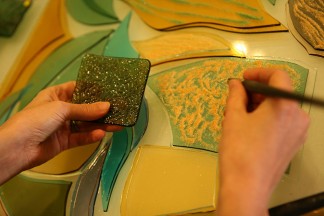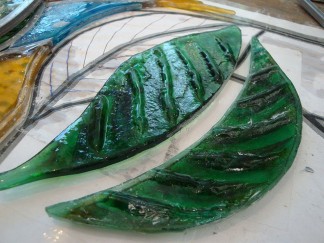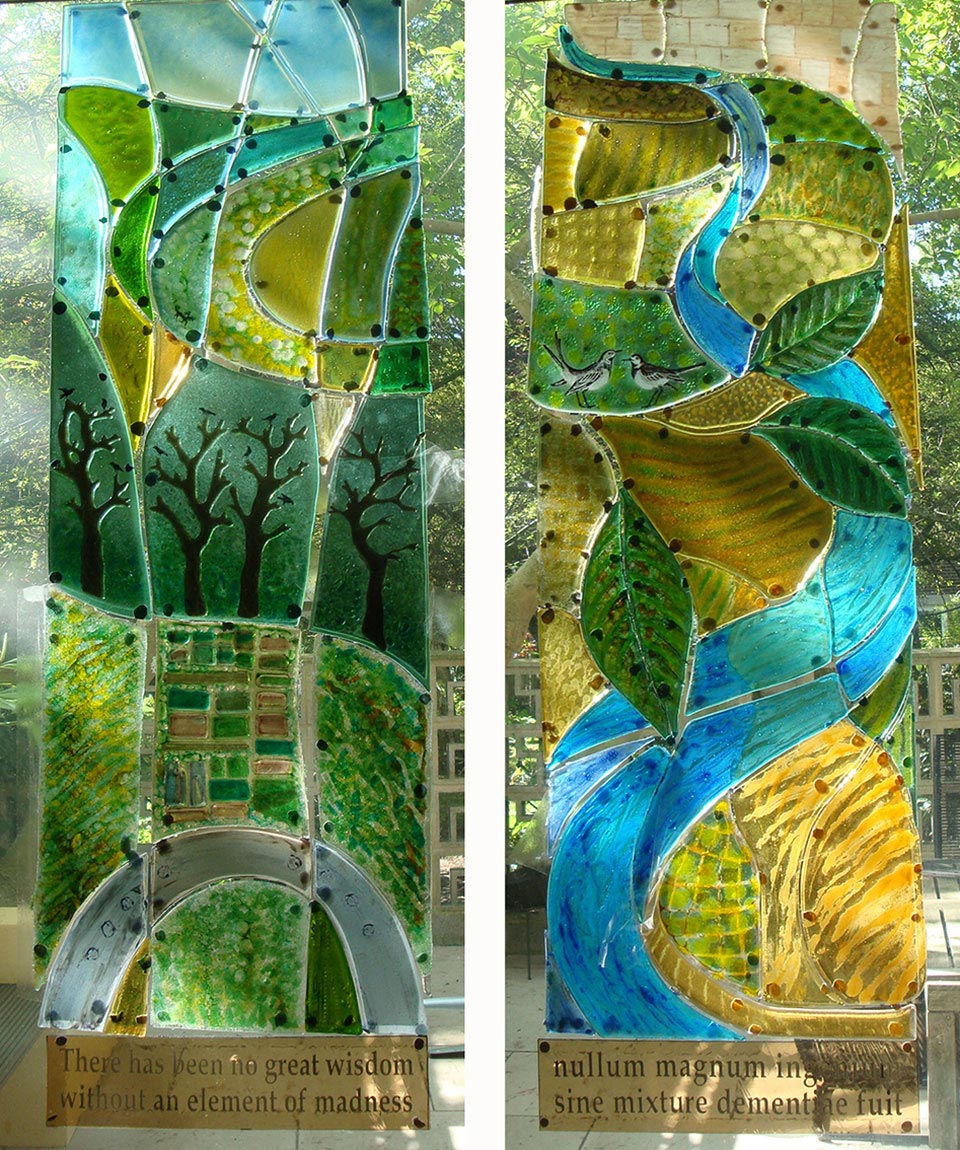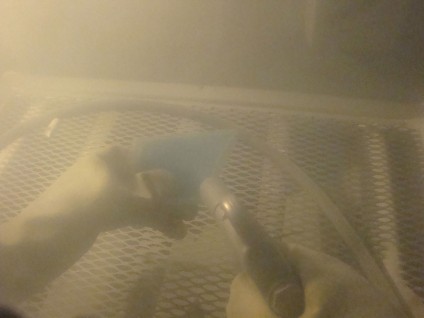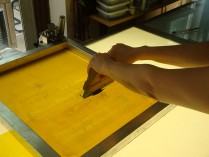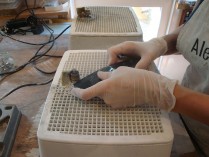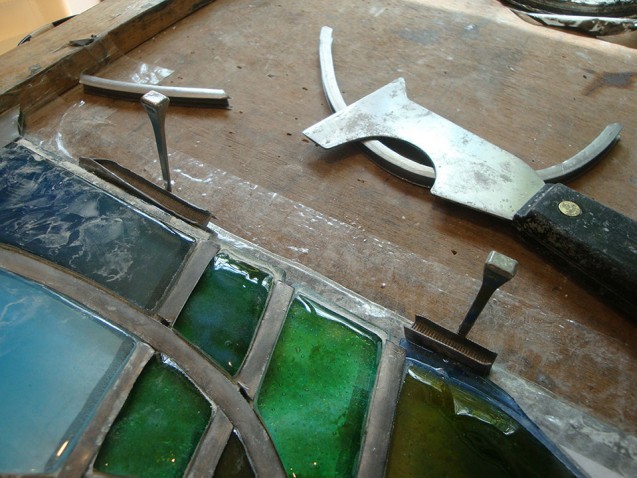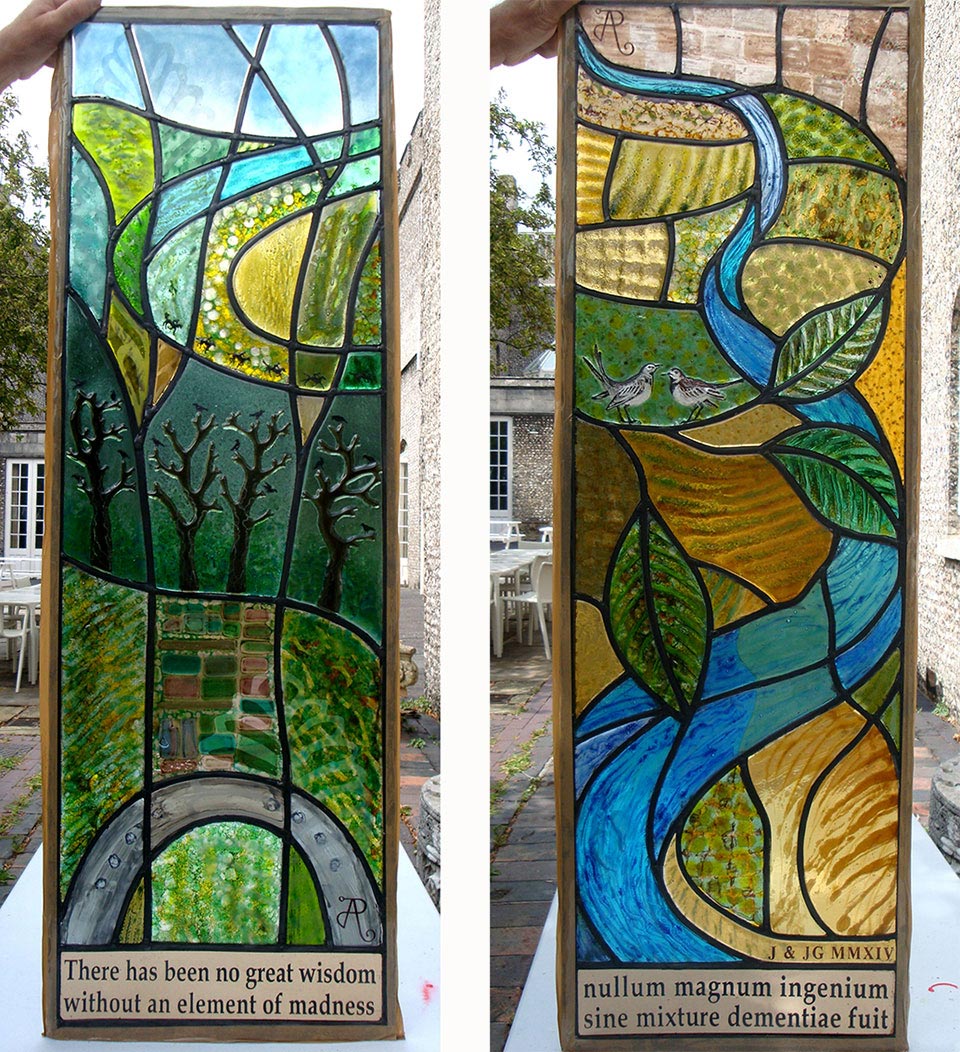On the Bank Holiday, I had to make an unexpected trip down to West Sussex to deliver work. Strangely, two days earlier my mobile phone had gone crazy and was inexplicably sending texts to a client of mine instead of the friend with whom I was trying to arrange my Friday night plans, but it was timely as my client mentioned that the windows I made for him last year had finally been installed. This gave me a second reason to go down to West Sussex, so I jumped in the car and made it down in record time.
I was delighted to see the almost completely finished house, a magnificent building which the clients had designed and built from scratch on a lovely site near the Cowdray Estate. My windows were designed for the porch so they were the last things to go in, to avoid any builders’ accidents going in and out of the building.
I brought my camera to capture the windows in situ and I was glad to see that the light was balanced well and the panels looked bright and colourful even on this slightly overcast day. The porch acted a little like a lightbox with the light coming through the glass into the darker space within, and with a strong light inside the porch the windows will look lovely from the outside at nighttime. The constant frustration for us glass artists is that our panels can’t simultaneously look good from inside and outside but, such is the nature of the material as it always looks its best viewed from the dark side with the light flooding through.
However with the panels illuminated, lots of detail could be seen up close and these panels were designed to reward closer looking. The clients have an affinity with racehorses and wanted references for this to be subtly included in the panels, as well as a couple of wagtails, one of which had flown into the outbuilding while it was being constructed. The features in each of the panels were inspired by the topology of the surrounding area, so as visitors come in through the porch they will see echoes of the land behind the house. The clients have always owned cats, and so I included a hidden cat in the ‘Water’ panel – I had assumed visitors would spot it fairly quickly but apparently it consistently evades identification. Can you see it?!
Read about the making of the panels here.
